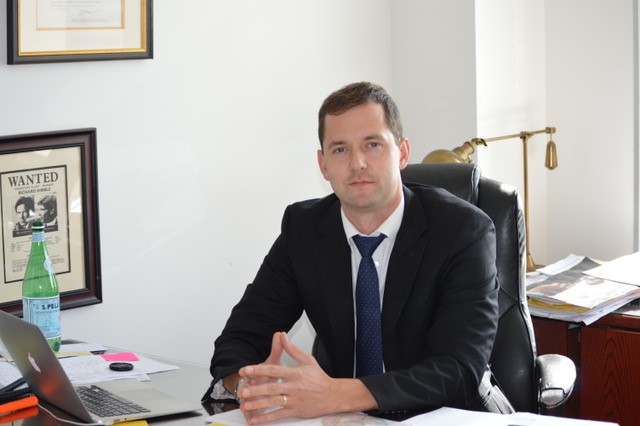
Case involved rare instance of co-conspirator arguing for co-conspirators' exception to hearsay rule

The Manitoba Court of Appeal has dismissed the appeal of a man convicted for cocaine trafficking and conspiracy.
The conviction was the result of Project Distress, a “year-long investigation into major drug operations in Winnipeg,” said the decision. The operation was launched when a civilian agent – with a history of drug trafficking and gang involvement – contacted the RCMP and offered his services as an informant. The police and the agent agreed the agent would be paid $1,250-per-week plus expenses and as much as $500,000.
The agent contacted the appellant, Jared Devloo, and asked to buy cocaine. Devloo then had the agent purchase an encrypted Blackberry with which the agent connected with Jason Ong. With Ong, the agent arranged three cocaine transactions, totaling four kilograms and worth $212,000.
The Crown’s position at trial was that by connecting the agent and Ong, Devloo sold cocaine to the agent and was a part of a conspiracy. Devloo’s defence was that he was not involved in any cocaine-trafficking conspiracy, that he merely introduced the two men, acting as an “agent for the purchaser.”
Devloo’s lawyer, Eric Wach, says the agent-for-purchase defence is usually used in smaller transactions. When someone is arrested for assisting in a drug buy, the question is whether they aided in the purchase (and are party to the possession) or aided in the sale (and are party to the trafficking), and the difference is typically between a fine and discharge and jail time. Wach argued Devloo aided the purchaser and because he was not being charged with that crime, he should be acquitted.
In October 2017, Justice Colleen Suche of the Manitoba Court of Queen’s Bench found Devloo and Ong guilty of drug trafficking and conspiracy and gave the men 10 and eight years, respectively. Ong was also convicted of possession of proceeds of crime.
In R v Devloo, 2020 MBCA 3, Devloo appealed his conviction on 15 grounds, including the refusal to admit hearsay comments made by the agent and Ong, under the co-conspirators’ exception. The case was a unique circumstance where an accused co-conspirator argues for the inclusion of hearsay comments made by another co-conspirator which would be evidence the former was not a member of the conspiracy, Wach says.
During the course of the RCMP investigation, the agent had used the encrypted messaging to try and implicate Devloo and the other co-conspirator Ong, who became suspicious that the agent was a police informant. Devloo then disposed of his encrypted device and despite repeated attempts, the agent was unable to regain contact with him. The agent and Ong continued their dialogue. The agent questioned Ong about Devloo’s whereabouts, and in turn, Ong made several comments that Wach argued were supportive of Devloo’s agent for purchaser defence. Ong said Devloo only introduced the agent to Ong’s “superiors,” that Devloo was not involved in the “day-to-day transactions” of Ong’s group and Ong did not know Devloo personally.
The problem for Devloo was that these useful comments were inaccessible to his defence. The Crown argued that once Devloo left the conversation, comments made by the agent and Ong were inadmissible hearsay and the trial judge agreed.
On appeal, Wach argued the post-Devloo comments should be subject to the co-conspirators’ exception to the hearsay rule, an exception typically used to argue for the guilt of one co-conspirator by tying them to actions and declarations made by another co-conspirator. To determine whether the comments were subject to exception, the court used the analysis from R. v Carter. Under the analysis, if the judge is satisfied the conspiracy existed and the evidence raises the probability the accused is a member of the conspiracy, the exception is applied.
“Historically the idea of the co-conspirators exception is that co-conspirators share an objective. So, if a group of people get together and they all agree to achieve a common objective, then one person's comments should be able to be used against all members because all members joined and agreed to pursue this common objective,” says Wach.
Wach, who has wide experience in drug cases, says it is unusual in a conspiracy for an accused co-conspirator to argue for the admissibility of comments made by co-conspirators, “usually it’s the opposite.” The court said there was no caselaw of which they were aware, where an accused admitted hearsay evidence to include an exculpatory conversation with the co-conspirators’ exception.
The Court of Appeal found that because Devloo said he was not part of the conspiracy, he denies the agency between him and the co-conspirators, so cannot use the co-conspirators’ exception to admit evidence because the exception relies on there being agency between him and the co-conspirators. Even if Devloo admitted to being part of the conspiracy, he had withdrawn from the conspiracy and it would be inadmissible because his agency with the co-conspirators had ceased, the court said.